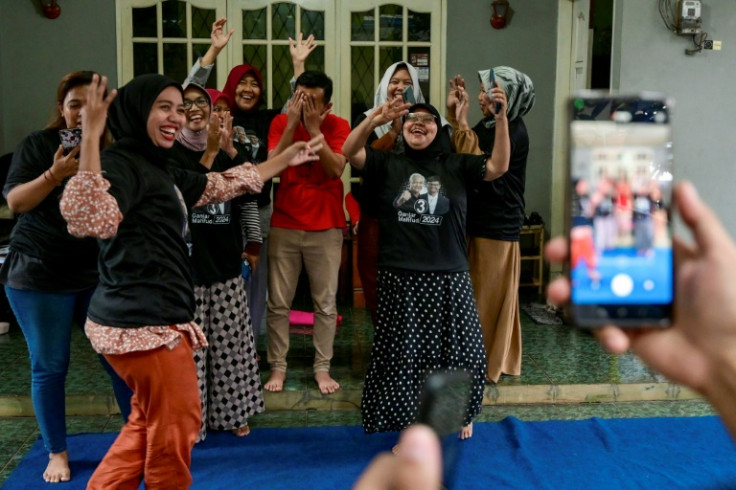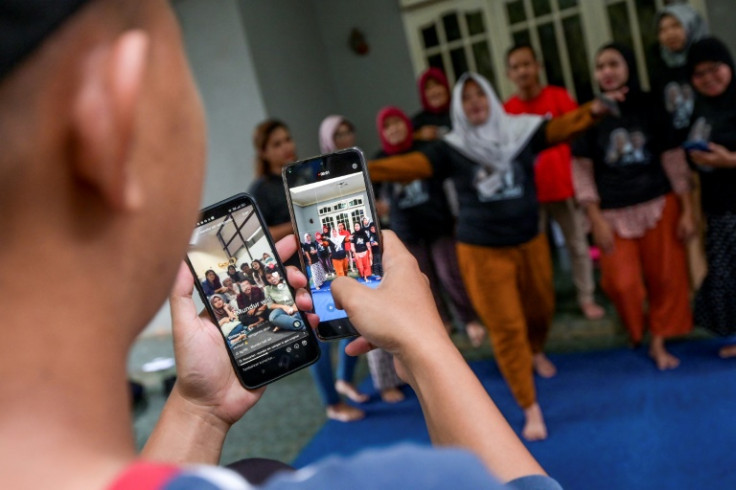
Indonesia's presidential candidates are posting light content on social media in a push to appeal to young voters, dressing up like Tom Cruise in "Top Gun", organising dance contests or forgetting to turn off a livestream.
In a country where millennials and Gen-Zers make up more than half the electorate, candidates Defence Minister Prabowo Subianto and former provincial governors Anies Baswedan and Ganjar Pranowo's ages range from 54 to 72.
With the power to swing Indonesia's youth vote, TikTok, Instagram and other platforms have become crucial tools in the arsenal of those vying to replace President Joko Widodo.
Indonesia is home to 278 million people, and 125 million are on TikTok alone.
"Today, the battlezone is on TikTok," said Angga Putra Fidrian of Baswedan's presidential team.
Facebook and Twitter were the dominant platforms in the 2019 election but this time around the Chinese-owned app has become dominant.
After the first vice presidential debate last month, clips from the broadcast were viewed 300 million times in 12 hours on TikTok, with three-quarters uploaded by candidate-linked users, according to analyst Hokky Situngkir of social research institute Bandung Fe.
Videos of 72-year-old frontrunner Subianto dancing have flooded Indonesian social media accounts, transforming his image from retired general accused by NGOS of ordering the abduction of democracy activists in the late 1990s to "cute grandpa".
His campaign for the presidency has held dance competitions to mimic him, offering a prize of hundreds of millions of rupiah (thousands of dollars).
"I see this phenomenon as a natural one," said Subianto's digital campaign coordinator Anthony Leong, adding that around 15,000 people are supporting his online campaign.
Baswedan, second in the polls, has gone viral for holding two TikTok livestreams -- and endearing supporters by showing confusion over how to turn off the broadcast.
It earned him the new nickname "online father" from his audience.
"We don't need him to appear in a complicated way, just be himself as usual," said Fidrian.
Pranowo, who was already active on Instagram and TikTok during his two terms as Central Java governor, has engaged in streaming duets with other prominent political figures and local TikTok influencers.
After the second presidential debate this month, the silver-haired candidate went live on TikTok dressed in a green military bomber jacket, posing like Tom Cruise from his film franchise "Top Gun".
It is not only presidential candidates using social media for their campaigns.
At a house in Tangerang, just west of Jakarta, a local councillor candidate was joined by a group of women to craft a TikTok video for his campaign linked to Pranowo's party.
One took centre stage shouting: "Move aside, everyone! My candidate will never get you bored!" to laughs and cheers as the spotlight turned to the councillor.
The clips were put to an upbeat soundtrack and uploaded the next day, capturing thousands of views within hours.
"Using social media to campaign is more cost efficient... so our campaigning messages can go directly to their hands," said Ukon Furkon Sukanda, a legislative candidate of the Indonesian Democratic Party of Struggle (PDI-P).
But some young Indonesians say they are looking for more serious content to help inform their electoral choices.
"I want a comparison, what's good about this candidate, what's good about that candidate," Annisa Ayu Shafira, a 21-year-old university student, told AFP.
While scores of videos making the rounds appear to be made by followers with no connection to the campaign, some Indonesians suspect much of the content they are seeing was paid for.
"Who is genuine? Who is pretending to be genuine? I am often confused because there are so many buzzers," said 17-year-old Nurul Lathifatul Azizah, who will be voting for the first time.
Paid or not, the social media rewards are ultimately worth it for the candidates seeking office.
"In 2024, whoever dominates TikTok will win all of the social competition," said analyst Situngkir.
"Whether it is business, political competition, or the election."









